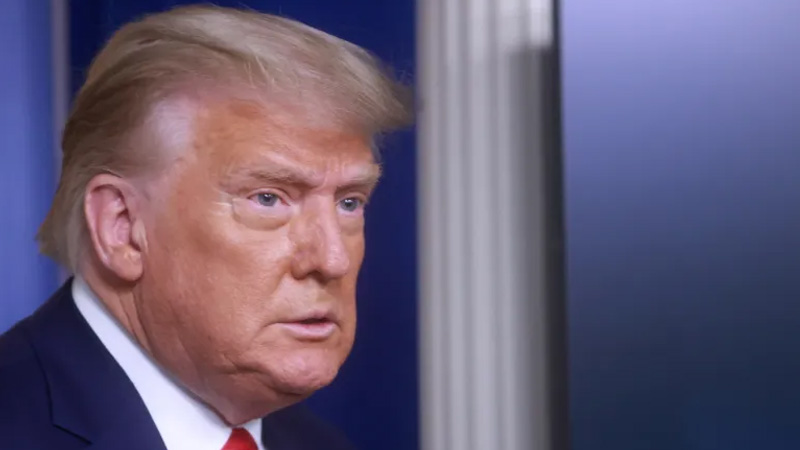Donald Trump, in a recent Truth Social post, declared that by claiming the 2020 election was “rigged” and “stolen,” he was fulfilling his presidential duties and thus deserves immunity from prosecution. Trump emphasized that his actions post-election were part of his obligation as President to investigate what he perceived as election fraud.
This stance echoes the arguments presented by Trump’s lawyers in a late-night filing on Saturday. They sought to have an indictment against him dismissed, arguing that as President, Trump had absolute immunity for his official acts. This legal position is reminiscent of a claim made by former President Richard Nixon in an interview with David Frost, where Nixon suggested that presidential actions are inherently legal.
According to report by Yahoo News, Trump faces indictment for his conduct following the 2020 election, which included pressuring local election officials, urging Vice President Mike Pence to halt the electoral vote certification, and promoting unfounded claims about vote tampering. These actions culminated in the January 6 attack on the Capitol.
In their latest filing to the D.C. Circuit Court of Appeals, Trump’s attorneys requested the judges to overturn a lower court’s decision that allows for his prosecution for actions taken while in office. District Judge Tanya Chutkan, in her ruling earlier this month, stated that being president doesn’t grant a perpetual exemption from legal accountability.
Trump’s legal team contends that his post-election actions were within the scope of his presidential duties, aimed at safeguarding the integrity of the federal election based on his beliefs of fraud and irregularity.
Special prosecutor Jack Smith, overseeing the case, recently sought an expedited Supreme Court ruling on the matter, but the request was denied. Smith argues that resolving the case before the 2024 election is in the public interest.
The D.C. Circuit Court, comprising one appointee of George H.W. Bush and two of Joe Biden, is set to hear oral arguments on January 9. By pursuing appeals, Trump not only defends his past actions but also potentially delays the legal proceedings, including his trial initially scheduled for March 4.


